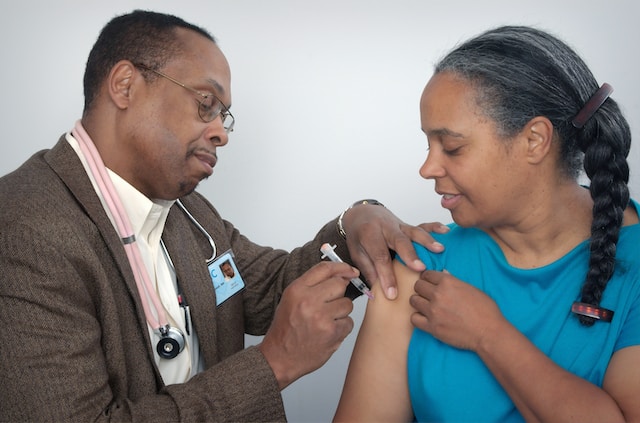Global health is a topic that affects every single person on this planet, yet it remains largely unknown to the general public. From finding cures for deadly diseases to implementing effective healthcare systems in developing countries, global health research has the power to save countless lives and improve well-being around the world. But how does scientific research translate into real-world action? In this blog post, we’ll delve into the fascinating process of translating laboratory-based discoveries into tangible solutions for global health challenges. Join us on this exciting journey from lab to field!
What is global health?
Global health is a multidisciplinary field that aims to improve the health and well-being of people across the world. It encompasses a broad range of research areas, including epidemiology, biostatistics, environmental health, social sciences and more. The ultimate goal of global health research is to reduce inequalities in healthcare access and outcomes among different populations.
There are many challenges facing global health today, from infectious diseases like malaria and HIV/AIDS to non-communicable diseases such as cancer and diabetes. Additionally, factors such as poverty, education levels and political instability can all impact the success of global health interventions.
Despite these challenges, there have been many successes in the field of global health over the years. Vaccines for illnesses like polio have dramatically reduced disease burden in certain regions while new treatments for HIV/AIDS have transformed this once-deadly condition into a manageable chronic illness.
Global health remains an essential area of study with enormous potential for improving human lives around the globe.
The different types of global health research
Global health research is a vast and diverse field that encompasses various types of studies. One type of global health research is epidemiological studies, which investigate the patterns and causes of diseases and illnesses in populations. These studies help identify risk factors and aid in the development of preventive measures.
Another type of global health research is clinical trials, which test new treatments or interventions for specific diseases or conditions. These studies evaluate the safety and efficacy of medications, vaccines, medical devices, behavioral interventions and other approaches to improve health outcomes.
Health systems research focuses on improving healthcare delivery systems by identifying gaps in access to care, optimizing resource allocation and improving quality standards. This type of research aims to increase efficiency while also promoting equity in healthcare.
Social science researchers study how social determinants such as poverty, education level or cultural beliefs impact health behaviors or disease outcomes. By understanding these factors better, researchers can develop targeted interventions tailored to specific communities’ needs.
Environmental health researchers analyze how environmental exposures affect human health over time through exposure assessment methods such as air pollution monitoring or water quality testing.
Understanding the different types of global health research helps us grasp a more comprehensive picture when it comes down to tackling complex public-health problems around the world.
The process of translating research into action for global health
Translating research into action for global health involves a complex process that takes time and resources. This process includes identifying the most pressing health issues, gathering data through rigorous research, analyzing the findings, and implementing evidence-based solutions.
One critical step in this process is engaging with stakeholders at all levels to ensure that the interventions implemented are culturally appropriate, feasible, and sustainable. It’s essential to involve community members in designing and implementing programs as they have valuable insights into their healthcare needs.
Another crucial aspect of translating research into action is building capacity among local healthcare providers to deliver quality care effectively. Training programs must be tailored towards addressing specific gaps in knowledge or skills so that healthcare professionals can provide optimal care even after project implementation ends.
Furthermore, it’s crucial to evaluate the effectiveness of these interventions regularly. Monitoring progress helps identify areas where improvements can be made while providing insight on how best to allocate resources moving forward.
Translating research into action requires collaboration between multiple stakeholders across disciplines and sectors. By ensuring active participation from communities affected by global health challenges alongside policymakers and researchers alike – we can achieve lasting positive impact on global health outcomes globally.
Case studies of successful translation of research into action for global health
When it comes to global health, translating research into action is crucial to make a real impact on people’s lives. Luckily, there are several successful case studies that demonstrate how this can be achieved.
One such example is the use of new diagnostic tools for tuberculosis (TB) in South Africa. Researchers developed a more accurate and faster test for TB and worked with the government to implement it in clinics across the country. This led to earlier detection and treatment of TB cases, ultimately saving lives.
Another success story comes from Ghana where researchers collaborated with local communities to address maternal and child health issues. They used community-based interventions like education campaigns, improved sanitation practices, and access to healthcare services which resulted in significant reductions in infant mortality rates.
Similarly, research conducted by an international team showed how investments in malaria control could lead to significant declines in illness and death rates among children under five years old in sub-Saharan Africa.
These examples showcase how taking evidence-based approaches can bring tangible benefits for global health outcomes when translated into action through strategic partnerships between researchers, governments and communities.
The challenges of translating research into action for global health
Translating research findings into action for global health can be a challenging task. One of the primary challenges is ensuring that interventions are culturally appropriate and tailored to the specific needs of each population. What works in one country may not necessarily work in another, which means that researchers need to take local customs, beliefs, and practices into account when developing their interventions.
Another challenge is the lack of resources available to implement these programs on a large scale. Even after demonstrating success in small pilot studies, scaling up interventions requires significant investment and political willpower. Without financial support from governments or other organizations, many effective interventions never make it beyond the pilot stage.
In addition to these challenges, there are also issues around sustainability. Many programs rely on external funding sources, which can be unreliable or short-term. To ensure long-term success, researchers must find ways to build capacity within local communities so that they can continue implementing and improving upon successful interventions themselves.
There’s the challenge of navigating complex regulatory frameworks governing research activities across different countries. Researchers must comply with ethical guidelines while also working within legal boundaries set by governments or institutions where they operate.
Despite these challenges facing researchers translating science into action for global health solutions; technology advancements such as telemedicine has enabled medical professionals worldwide access knowledge-sharing platforms like Medscape & UpToDate making healthcare access more feasible than before!
Conclusion
Global health research is an essential component in addressing the health challenges faced by populations worldwide. While scientific discoveries and innovative technologies have accelerated progress towards improving human health, translating these findings into action remains a significant challenge.
Through collaboration between researchers, policymakers, and communities affected by health disparities, we can ensure that advancements in science are translated into real-world solutions that address the most pressing global health issues. By learning from successful case studies and overcoming the barriers to translation outlined in this article, we can continue to make strides towards achieving equitable access to healthcare for all people around the world.









